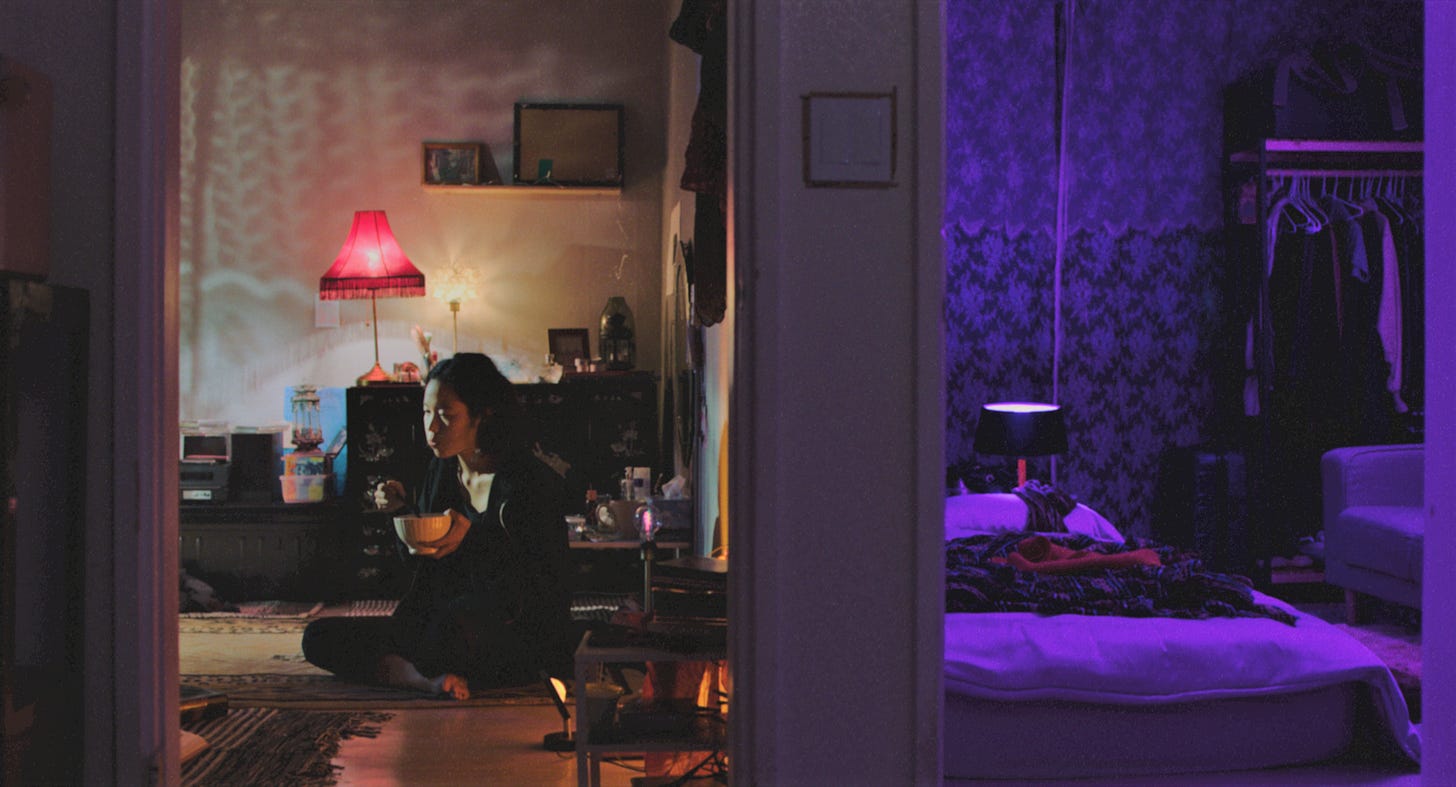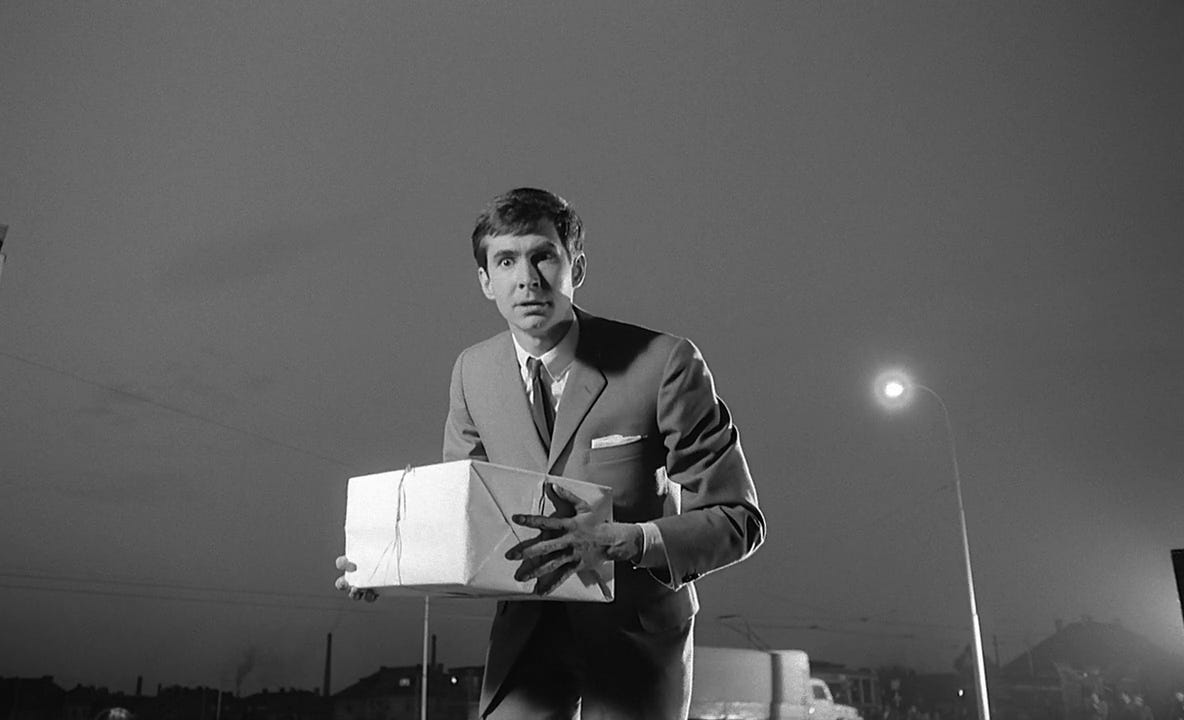Links & Looks, March 6, 2023
Return To Seoul, Orson Welles' The Trial, Ed Zwick's Twitter-born memoir
Return To Seoul.
This week, I wrote about Davy Chou’s Return To Seoul (once titled “All the People I’ll Never Be.”) “A bright world, an intoxicating world, a whirl of neon and soju and pregnant pauses, envelops Freddie in her quest, and the elliptical telling only fixes us onto the charismatic Park’s features, a magnetic face, first a dagger of stare, succeeded by a warm small bloom of smile. Chou’s style is more scansion than montage.” I was hooked after the first bold, simple shots.
Also: a review of “resolutely shambling misfire” Operation Fortune: Ruse De Guerre — “The style of Ruse is busy with zooms and pans and push-ins like a movie from the early 1970s by termite directors like Hubert Cornfield, but the lighting, particularly on faces, is a lovely, anachronistic take from several eras of big-budget, multiple-producer hit-and-fun filmmaking” — and yet another edition of The Texas Chain Saw Massacre, in 4K UHD, with seven hours of extras. Plus: a revival at Doc Film of one of Philip Seymour Hoffman’s final roles, Anton Corbijn’s 2014 John le Carré adaptation, A Most Wanted Man: “Robin Wright is lovely in the blanching light in a café many floors up, overlooking the rivers below, but Hoffman’s unshaven, white-bristled jowls and pale blue eyes turn him spectral, whiter than milk, ruined from within, framed against the arch halation of brilliant fog outside the window not yet burned from the morning’s skyline.”
The Trial. The birthday cake.
I had never seen Orson Welles’ The Trial (1962) until a preview last week in Chicago of its 4K digital restoration.
The Trial. Eight-hundred typists in one room.
To watch a movie this masterful (and maudit) as if it were brand new, basic fare, not yet exposed to the light, a fresh cultural artifact… a succession of sounds and images. As if it were the kind of picture not just to be expected, but demanded of a week’s releases. The senses struck anew, rather than struck afresh. And now a day ahead to describe those tender bruises.
Shakespeare In Love.
A while back, filmmaker Ed Zwick began bullet-pointing his career as a director and producer of film and television on his Twitter account.
Here’s a typical, terse sample from 2022: “I was on top of the world. “thirtysomething” had won the Emmy for best TV series. Glory had won three Oscars. I was wined, dined and opined. The phone rang constantly. Offers abounded. What could possibly go wrong? The answer… everything. I should have been exultant yet I was depressed. Listless and lost, I went into therapy and discovered I was in pursuit of success at the expense of all else. I was determined to change. To seek meaning in my work. And then Ridley Scott sent me a script. It was called “Thelma and Louise,” a subversive take on women’s rage and revenge. I liked it and discussed it in therapy. Was this the kind of story I want to tell, he asked. I waffled. ‘It’s wildly entertaining,’ I said, ‘but does it have depth?’ I passed…” More at the link.
The next stage: Zwick writes about another bedeviled project as “The Untold, Sordid, Vainglorious Tale of The Making of Shakespeare in Love,” and that first chapter of memoir is here. “Among the many things Harvey promised was to include my central role as producer in all press releases and to feature me in every major interview about the genesis of the movie. In exchange, Marshall Herskovitz, my partner in the Bedford Falls Company, nobly agreed to have his producer credit replaced by Donna Gigliotti and David Parfitt. The Bedford Falls Company presentation credit would remain. In later years I’ve read that Harvey claims to have fired me. What’s more likely is that he was lying about his deadline to put the film into production.”






